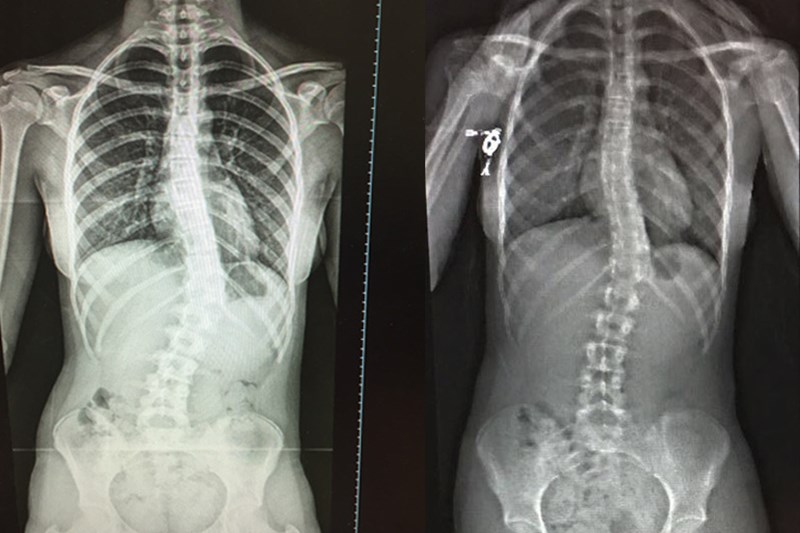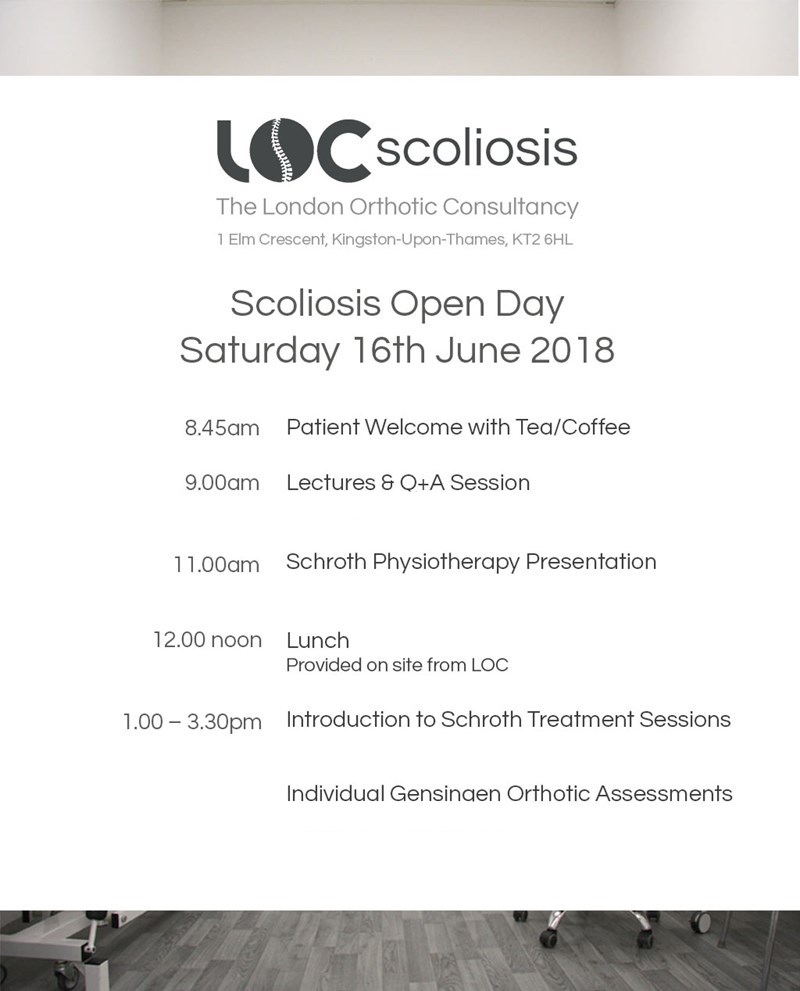
12 March 2018
LOC will be hosting a Scoliosis Patient Information day on Saturday, June 16th, where new patients will have the opportunity to discuss their condition with LOC’s scoliosis team without charge. Prospective patients are asked to bring along their x-rays and reports so that our combined clinical team can provide their treatment recommendations.
Since LOC’s scoliosis clinic opened last year, Cobb angles in excess of 40 degrees have responded to the combined treatment of a derivative of the Cheneau-Gensingen Brace and Schroth physiotherapy.
To find out more about LOC’s non-surgical treatment for idiopathic scoliosis, head to our Scoliosis Clinic page.

To book an appointment for this event on the 16th June, please ring the clinic on 020 8974 9989.
Our Kingston-upon-Thames Clinic Address:
The operation used to treat severe scoliosis curves is typically spinal fusion surgery; a major procedure that involves moving muscles and realigning the skeleton into place. The curved, deformed vertebrae are fused together into a single bone, putting metal screws and rods into the spine to help straighten it. Surgery typically lasts between 4 and 8 hours depending on the severity of the curve. Bone graft is then taken from other parts of the body and used to cover the implants.
Following the operation, it is necessary to spend around a week in intensive care before returning home and the first few days are often uncomfortable. Most adolescents can expect to return to school from 2-4 weeks following surgery, but pain medication may be required up to 6 weeks following. A full recovery from the procedure can take up to a year, as it can take that long for the spine to heal fully.
Spinal fusion surgery causes the fused portion of the back to become permanently stiff, as a result, returning to sports that require large amounts of flexibility (ballet, yoga, gymnastics, dance) or contact (rugby, football, karate, hockey) may take longer.
Risks of spinal fusion surgery are like that of any other major procedure and include infection, blood clots and anaesthesia complications. The added risks include permanent nerve damage to the spine and paralysis.